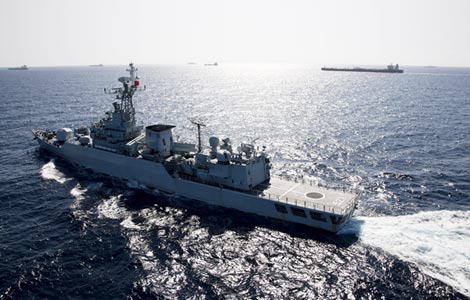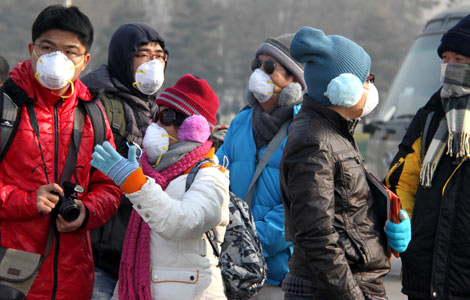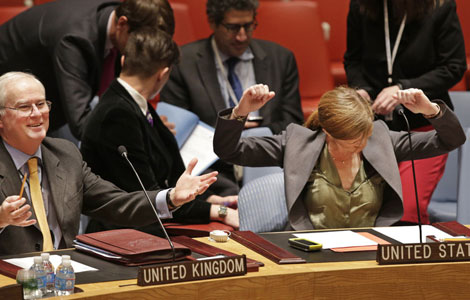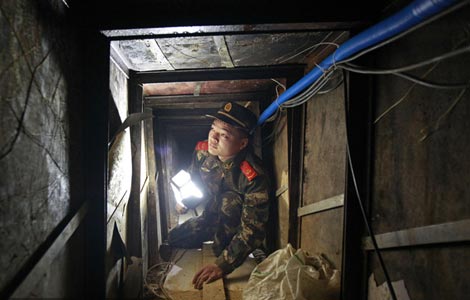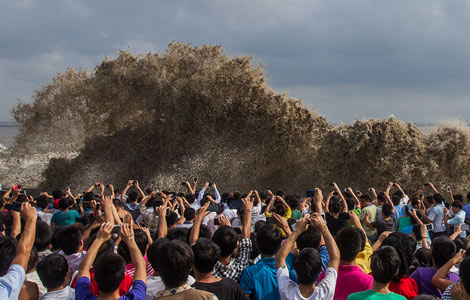Rough life on the Gulf of Aden
Updated: 2013-12-26 07:37
By Peng Yining (China Daily USA)
|
||||||||
On good days, the water in the Gulf of Aden is as flat as a mirror. Schools of dolphins leap as they chase flying fish, which try to escape over the water, while breezes carry the fresh smell of the ocean.
But most of the time, the wind brings sandstorms from the desert that reaches to the shore, and the water in the area is rough, according to Yang Guojun, a 31-year-old soldier who deployed on a Chinese naval escort mission in 2009 and 2011. High waves break on the ship decks and cause it to roll hard.
Yang said sometimes it wasn't possible to even cook onboard as liquids would spill out of the pans.
"Many people had a hard time getting to sleep because of the rolling and seasickness," Yang said. "I often felt I would be thrown out of my bunk bed, and a couple of times, I slept on a chair holding on to a post."
In the daytime, the deck was heated by the tropical sunlight to more than 60 C. "I had to put a wet towel on metal handles before holding them," he said.
Another challenge for those on the escort mission was being away from land for a long time, said Captain Li Jihui, who took part in a 274-day mission in 2009, the longest in the PLA navy's history.
During that mission, Li said, every month the crew had about five days on land when the ship moored to take on supplies, but the rest of the time they lived on the ship without access to mobile phones, television or the Internet.
There was hardly any privacy as people shared everything, including cabins and bathroom facilities. The rear deck, the biggest open space on the frigate, was only about half the size of a tennis court.
"The hardest part was being apart from our families. We waited for two hours in a line and called them for five minutes every week," he said. "Many of us missed the births of our children or the funerals of our parents."
Living in hot humid weather in a limited space for such a long time is a big challenge for anyone, according to Guo Yong, a psychologist with the General Hospital of the PLA navy.
"During the deployments, many soldiers lost their appetites, or had difficulty getting to sleep," said Guo. "It is easy to get depressed living on the ocean."
Mi Jinguo, an officer who joined the mission in 2011, said the first few weeks of the cruise was fun. "But after six months of repeating the same work over and over again, life became exhausting and tedious," he said. "By the end of our mission, nobody even talked in the cabin. After we finished, we joked that life on the ship was like living in a big tomb."
Mi said the situation has since improved. All the escort ships now have medical professionals onboard and the living conditions have gotten better.
(China Daily USA 12/26/2013 page7)
Most Viewed
Editor's Picks

|

|

|

|

|

|
Today's Top News
Reform plans give US 'hope about trade'
Abe's shrine visit grave provocation
Viacom-Sohu.com deal 'a foothold': analyst
Obama thanks troops on Christmas
Abe to visit Yasukuni Shrine
US just passing the buck
Turk PM reshuffles cabinet
Asian Americans find their history
US Weekly

|

|

